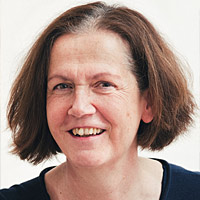Panel IV
Please note that this Panel IV will take place in Lecture Hall 2.The body in the culture and the culture in the body
Moderation: Julianne Appel-Opper

Julianne Appel-Opper, Dipl-Psychologist, Psychological Psychotherapist, UKCP Registered Integrative Psychotherapist, MUKAHPP, Supervisor (Univ. of Birmingham, U.K.), international trainer, visiting tutor at psychotherapy training institutes e.g. Norway, Rumania, U.K. since 2001. For 12 years she lived and worked in France, Israel, California and in the U.K. Since 2006 in private practice in Berlin. She has run international training programs about interbodily processes in Berlin for many years. Beside these themes, she has published on the interlink between body and culture since 2010.




